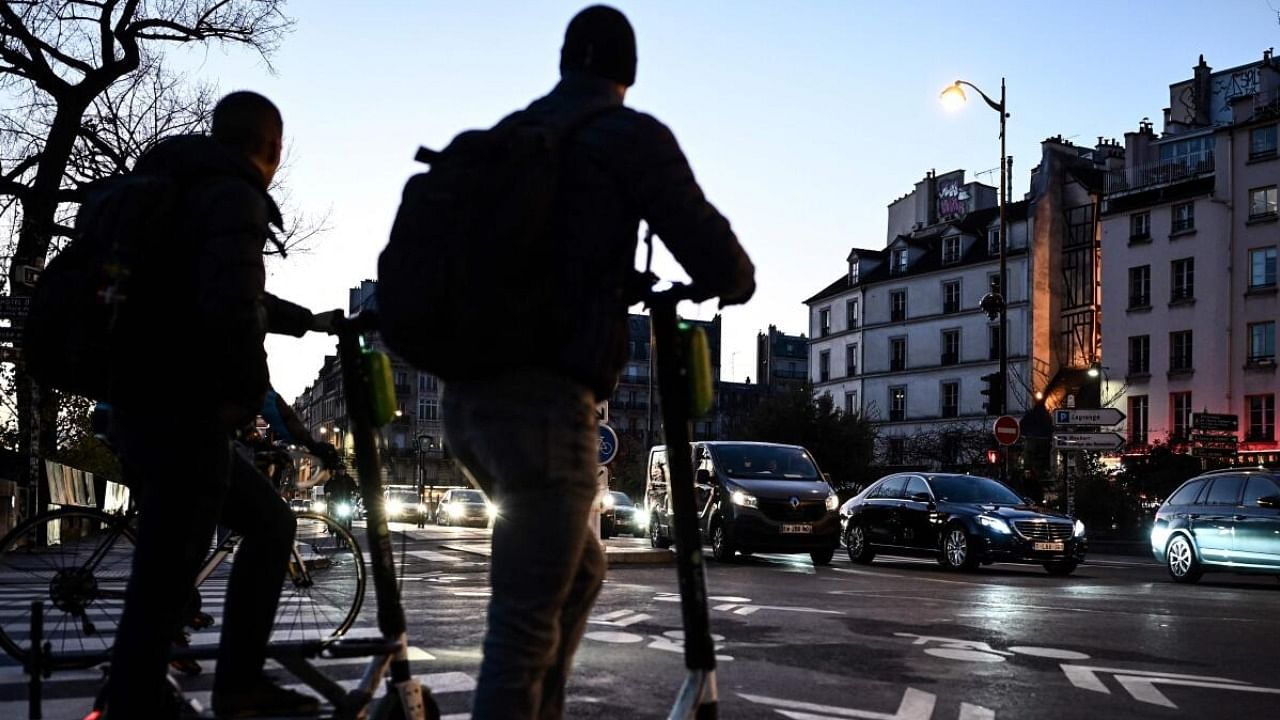
The for-hire electric scooters that have become ubiquitous in Paris and other cities worldwide are under scrutiny in the French capital, where residents vote Sunday on whether to ban them.
If Paris does outlaw the app-based devices that zoomed onto the city's streets in 2018, it would become the biggest city to do so.
AFP looks at how other cities are managing the vehicles that inspire a mix of love and loathing, with users hailing them as eco-friendly ways to avoid gridlock and detractors slamming them as unsightly menaces with the power to maim and kill.
The French capital was an early adopter of e-scooters in 2018, when the pavements were soon strewn with discarded rental devices from the first operator, Lime.
After an uproar over the anarchy and a number of fatal accidents, the city clamped down, reducing the number of operators to three (Dott, Lime and Tier) and the number of scooters to 15,000.
While riders as young as 12 can still use them (the government wants to raise that to 14), they must be parked in designated spots and riders are not allowed to go over 10 kilometres per hour in most parts of Paris -- but many do anyway.
Sunday's referendum will decide whether rental scooters should be allowed at all. The vote will not impact privately owned electric scooters.
Across the Channel, London has shown greater caution with regard to devices the city's police chief called "death traps".
Only rental e-scooters with specific safety features are allowed in the capital. Privately owned devices are illegal.
Riders must be 18 or over and have a full or provisional driving licence. The scooters have a speed limit of 12.5 miles per hour (20 kph) and their lights remain on while in use.
New York is a relative newcomer to the scooter sharing revolution, with the first service launching only in the summer of 2021, in the Bronx.
People aged 16 and over are allowed to use both rental and private e-scooters, with the speed limit set at 15 mph (24 kph) and riders obliged to give pedestrians the right of way.
Like most cities, New York bans people from riding on the pavement.
After a number of crashes and near-misses involving the two-wheelers, including one notorious attempt by two US tourists to ride down the famed Spanish Steps, Rome has vowed to impose order on its booming e-scooter rental market.
The city unveiled plans last year to raise the minimum age for scooter rental to 18, reduce their maximum speed from 25 kph to 20 kph, and reduce the number of for-hire operators from seven to three, with restrictions on parking.
But the measures, which had been due to take effect in January 2023, have yet to be implemented.
Montreal in 2020 outlawed all electric scooters, rental and private, from circulating on any public roads and cycle paths, complaining that four times out of five they were discarded on the street instead of being parked in designated spots.
Copenhagen also banned rental e-scooters in 2020 but brought them back a year later, albeit under strict conditions including an outright ban on parking in the city centre and the requirement for users to wear helmets.
Singapore has some of the toughest penalties for reckless scooter riders, with those caught careening along sidewalks facing up to three months in jail and a fine of 2,000 Singapore dollars ($1,500).